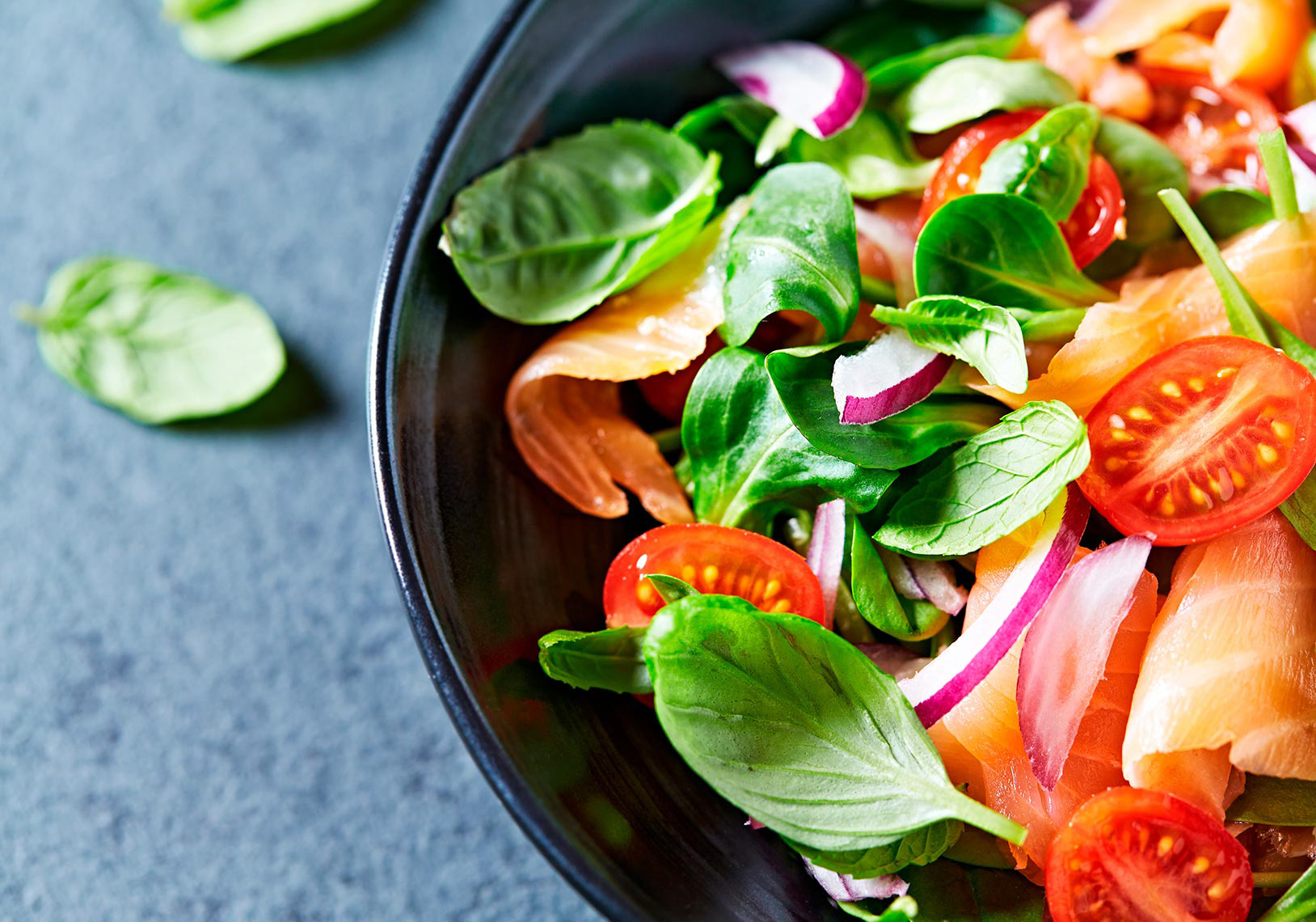
Epidemic time and related lockdown do not encourage maintaining healthy eating habits. We have more free time, when we reach for snacks and also we try new, tasty recipes, which are not always healthy and low-cal. Additionally, our physical activity was reduced, so our calorie intake is lower. Unfortunately, it can lead to increased body weight. If you want to prevent this side effect of the pandemic, then implement few significant, simple rules:
1. Your meals should be eaten every 3–4 hours and don’t eat anything in between (if you are constantly providing your body with fuel from food, it will never use the reserve, namely fat tissue).
Last meal should be eaten 2–3 hours before bedtime, preferably consisting of fresh vegetables with healthy fats (such as linseed oil, olive oil) or a few nuts and fresh herbs.
Write down these hours on a piece of paper and hang it in a visible place, preferably in the kitchen. Your diet should be diverse, rich in unprocessed products and a lot of vitamins and minerals.
2. If you are thirsty, drink water. A glass of juice or beverage may have as much as 100 kcal, which comes from sucrose or fructose (excess of these sugars causes, among others, insulin resistance, non-alcoholic steatosis of the liver, increases the risk of gout and diabetes). If you want to enrich water with nutritional values and flavour, it is worth adding fresh mint leaves or this herb infusion. In addition to good mint taste, it reduces body stress, supports work of the digestive system, has a soothing effect on damaged gastric mucosa and antibacterial properties due to contained tannins.
3. Get rid of calorie snacks, because e.g. two cookies often have the same amount of kcal as a slice of bread with vegetables. However, it is worth supplementing your diet with products containing a large amount of fibre (because it prolongs the satiety feeling) and anti-stress products, since it is one of the main reasons of reaching for snacks. Products rich in fibre include bran, whole-grain products and vegetables.
On the other hand, feeling of peace and quiet can be achieved by drinking infusion of fresh lemon balm, used preferably instantly after the break. Contained active substances are also helpful in neuroses and ensure a peaceful sleep.
4. If you suffer from bloating, constipation or other gastrointestinal problems due to less physical activity, it is worth enriching your kitchen with herbs. Basil, dill, savory, thyme, rosemary, parsley or aforementioned mint will be particularly valuable in this case. These plants added to our traditional dishes support the digestive processes, which helps with dyspeptic ailments (indigestion), adjust intestinal function (inhibit diarrhoea and reduce constipation), ease intestinal inflammation and improve peristalsis.
To sum up: healthy diet should include unprocessed foods and lots of fruits and vegetables. It is worth enriching it with healthy fats, nuts and fresh herbs. Important thing is to eat regularly and avoid snacks and sweet beverages full of calories. Article was written in cooperation with Nina Łangowska, MSc — medical nutritionist, biologist, graduate of Medical University and University of Gdańsk.